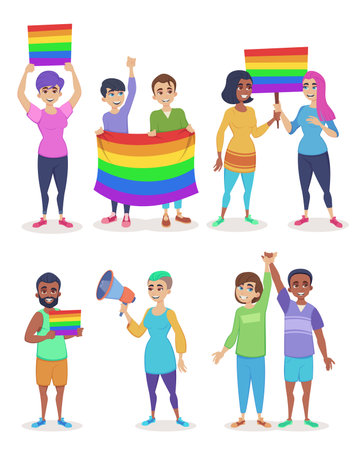Introduction to Multicultural Families in the UK
As a parent raising children in the UK, it’s impossible not to notice the vibrant diversity that makes up our communities. Multicultural families—those where parents or guardians come from different cultural, ethnic, or national backgrounds—are becoming increasingly common across Britain. This isn’t just about mixed-nationality couples; it also includes families where children are adopted from abroad, or where extended family members bring unique cultural traditions into daily life. The UK has long been recognised for its multicultural society, especially in cities like London, Manchester, and Birmingham. According to recent statistics, over one in three children born in the UK now have at least one foreign-born parent. This growing diversity brings a wealth of experiences, languages, and perspectives, but it also means that many families are navigating legal systems and support networks that might be unfamiliar or challenging. Understanding your legal rights and knowing what support is available is crucial for ensuring every family can thrive within this wonderfully diverse environment.
Basic Legal Rights for Families and Children
As a multicultural family living in the UK, understanding your basic legal rights is absolutely essential. When my family first arrived, I was overwhelmed by the different rules and entitlements, but knowing where you stand can make daily life so much smoother. Here’s an overview of key protections under UK law, especially focusing on residency, healthcare, and education—three areas that every parent worries about at some point.
Residency and Immigration Status
The UK recognises a variety of immigration statuses, each with its own set of rights. If you’re here as a spouse, partner, or parent of a British citizen or settled person, you often have the right to live and work in the country. Children born in the UK to parents with ‘settled status’ or British citizenship are usually entitled to British citizenship themselves. It’s worth keeping all your paperwork up-to-date and contacting the Home Office if anything changes—trust me, it saves a lot of stress later on!
| Status | Key Rights |
|---|---|
| Settled Status / Indefinite Leave to Remain | Right to live, work, study; access public funds; apply for citizenship after eligibility period |
| Spouse/Partner Visa | Right to live and work; access NHS; children may attend state schools |
| Student Visa | Limited work rights; access to education for dependent children (usually state schools) |
| Refugee Status / Humanitarian Protection | Right to work, access NHS and education; support with housing and benefits in some cases |
Healthcare Entitlements (NHS)
The National Health Service (NHS) provides most healthcare free at the point of use for residents. If your family has ‘ordinary residence’ or valid visas like a spouse/partner visa or refugee status, you can register with a GP just like any other local family. Newborns are automatically entitled to NHS care. Make sure to bring proof of address and immigration status when registering—it’s something I learned after being sent home to fetch extra documents more than once!
Education Rights for Children
In the UK, all children have the right to free education from ages 5-16 regardless of nationality or immigration status. State schools cannot refuse admission based on background or language needs. Many schools offer extra support for children learning English as an additional language (EAL)—a real relief if your little one is starting school for the first time! You should contact your local council’s admissions team to find out about catchment areas and application deadlines.
Key Takeaways for Multicultural Families
- You do not need to be a British citizen for your child to access healthcare or education.
- Your legal rights often depend on your specific visa or immigration status—keep documentation safe and up-to-date.
- If you feel unsure about entitlements, many local councils have dedicated services for multicultural families.
Personal Tip:
If you ever run into confusion (as I did), don’t hesitate to ask your GP practice receptionist or your child’s school office—they’re used to helping new families settle in and can point you toward further support.

3. Supporting Multilingual and Multicultural Children in Schools
As a parent new to the UK, one of my biggest concerns was how my child would fit into the British education system. Fortunately, schools across the UK are well-versed in welcoming children from all sorts of cultural and linguistic backgrounds. If your child speaks English as an additional language (EAL), many schools have dedicated staff and resources to help them adjust, including EAL coordinators and specialist teachers who provide targeted support both in and out of the classroom.
UK law requires that all children have equal access to education regardless of their background. This means your child has the right to learn in a safe, inclusive environment where diversity is valued. Many schools celebrate different cultures through special events, assemblies, and curriculum topics—something my own family found both reassuring and exciting! These activities not only help multicultural children feel seen but also teach their peers about respect and understanding.
For parents, navigating the education system can be daunting, especially with unfamiliar paperwork or processes. My top advice is to communicate openly with your child’s school: don’t hesitate to ask for interpreters during meetings if you need them or request translated documents. Most schools are happy to arrange these services. Additionally, local councils often offer free workshops or drop-in sessions for families from overseas—these can be invaluable for understanding your rights and available support.
If you’re unsure about anything—from school admissions to SEN (Special Educational Needs) support—reach out to organisations like Citizens Advice or local family support charities. They can guide you through applications, appeals, and even help resolve any issues with discrimination or bullying. Remember, you’re not alone; there’s a wide network ready to support multicultural families like ours every step of the way.
Accessing Legal and Community Support
When my family first moved to the UK, we were amazed by the range of support available for multicultural families. Navigating a new legal system can be overwhelming, especially when English isn’t your first language. Luckily, there are plenty of free or low-cost services designed to help us understand our rights and feel part of the community. Below I’ve summarised some of the main resources that have made a difference for us and other families in similar situations.
Translation and Interpretation Services
Communication is key when dealing with legal matters or accessing public services. The UK provides various translation and interpretation options so you don’t have to face these challenges alone.
| Service | Description | How to Access |
|---|---|---|
| NHS Language Line | Free interpretation during medical appointments | Request at your GP surgery or hospital reception |
| Council Translation Services | Local authorities often provide interpreters for council meetings, schools, and housing support | Contact your local council offices for details |
| Citizens Advice Bureau (CAB) | Offers advice in multiple languages on legal rights, housing, benefits, and more | Walk into a local CAB branch or check their website for language options |
Community Organisations for Multicultural Families
I found joining a community group really helped me settle in and find answers to practical questions about life in the UK. Many organisations offer tailored legal support as well as social opportunities for families like ours:
- Migrant Help: Support with immigration queries, housing, and integration for asylum seekers and refugees.
- The Refugee Council: Advice on asylum claims, access to education, and children’s services.
- Barnardo’s: Family support services, including parenting advice and child welfare guidance for ethnic minority groups.
- African Community Centre / Asian Resource Centres: Local groups offering drop-ins, workshops, and culturally specific advice.
Government Resources You Should Know About
The government provides several online portals where you can find up-to-date information about your rights as an immigrant or multicultural family. These resources are reliable starting points if you’re unsure which steps to take next:
- Gov.uk Visas & Immigration: Guidance on visas, citizenship applications, and family reunion policies.
- Home Office: Information about refugee status, settlement schemes, and staying legally in the UK.
- Children’s Commissioner for England: Resources on children’s rights in school, healthcare, and social care settings.
- Citizens Advice: Free confidential advice by phone, online chat, or in person.
Tips from My Own Experience
If you’re new here like I was not long ago, don’t hesitate to ask for help—even if it feels intimidating at first. Most service providers are used to supporting families from all backgrounds. Bringing a friend or another parent along can also make things easier. And remember: many services will arrange interpreters if you let them know ahead of time. No one should miss out on support because of language barriers or lack of information.
5. Navigating Cultural Differences and Family Life
As a parent raising children in a multicultural family here in the UK, I’ve personally experienced both the joys and challenges that come with blending different cultures. One of the biggest hurdles is cultural integration. It’s not uncommon for families to feel a sense of being “between worlds”—trying to fit into British society while holding on to our own heritage. The good news is, UK law supports the right to maintain your cultural identity and encourages mutual respect among diverse communities.
Addressing Cultural Integration Challenges
When my children started nursery, I worried about whether our family’s traditions would be understood or accepted. Many schools and community centres now celebrate diversity, but it’s perfectly normal to feel anxious about being different. If you find yourself facing misunderstandings or barriers, know that local authorities and organisations like Citizens Advice can offer guidance on your rights and ways to communicate your needs effectively within educational settings or at work.
Dealing With Discrimination
Unfortunately, discrimination can still happen. The Equality Act 2010 protects everyone from unfair treatment based on race, religion, or ethnicity. If you or your child experience discrimination—whether at school, work, or in public services—you have the right to raise concerns and seek support. Organisations such as the Equality Advisory Support Service (EASS) provide free advice on how to handle these situations sensitively and assertively.
Tips for Maintaining Cultural Heritage
Preserving your family’s cultural roots while living in Britain is possible—and important! Here are some personal tips: join local cultural associations; attend community events; cook traditional meals together; speak your native language at home; and share stories about your background with your children. Schools often welcome parents who want to introduce aspects of their culture through food days or storytelling sessions—don’t hesitate to get involved! By embracing both British values and your own heritage, you’ll help your children grow up confident in their identity while feeling included in wider society.
6. Where to Find Further Help and Advice
When you’re raising a multicultural family in the UK, knowing where to turn for help can be a real lifeline—especially if you’re new to the country or still finding your feet. Thankfully, there are plenty of organisations and resources that offer legal advice and practical support tailored to families from diverse backgrounds.
Useful Hotlines
If you need urgent advice or just someone to talk to, there are several hotlines available. Citizens Advice (03444 111 444) offers free, confidential guidance on legal rights, housing, employment, and more. If you have concerns related to children’s welfare, NSPCC (0808 800 5000) provides a helpline for parents and carers seeking support or reporting worries about a child’s safety.
Helpful Websites
The Gov.uk website is your go-to source for official information about your rights as a parent or carer, including immigration status, benefits, and education. Citizens Advice online also has easy-to-understand guides about family law, discrimination, and dealing with local authorities.
Charities Supporting Multicultural Families
There are charities dedicated to supporting multicultural families across the UK. Migrant Help assists with immigration queries and integration support. Barnardo’s runs programmes for children and families from all backgrounds. For those needing help navigating cultural differences in parenting, The Refugee Council provides specialist advice and support groups.
Community Groups and Local Initiatives
Your local community centre or council website will often list multicultural groups where families connect, share experiences, and find informal help. Organisations like Mothers’ Union, NCT (National Childbirth Trust), and local faith-based groups often host events and offer peer-to-peer support in multiple languages.
A Personal Note
As a mum who moved here not too long ago myself, I found that reaching out—even just popping into a local community group—made all the difference in understanding my rights and getting reassurance when things felt overwhelming. Don’t hesitate to use these resources; there’s always someone willing to listen or point you in the right direction.
If you’re ever unsure where to start, ask your health visitor or child’s school—they often know about helpful local services that aren’t always advertised widely. Remember: you’re not alone, and there’s lots of friendly support out there for multicultural families across the UK.

